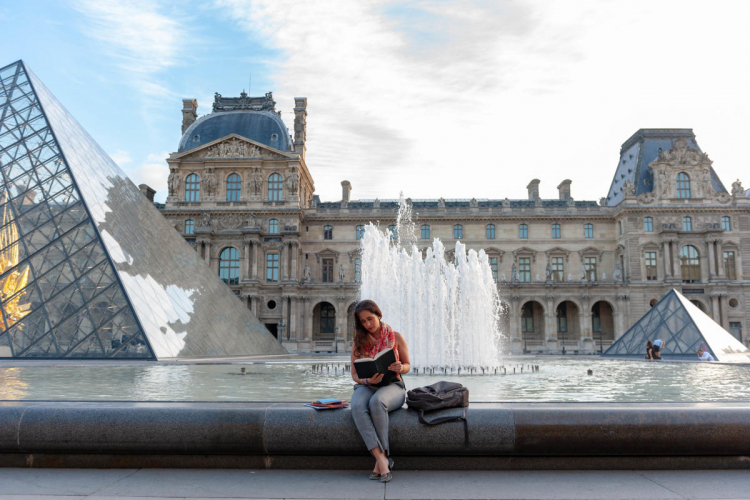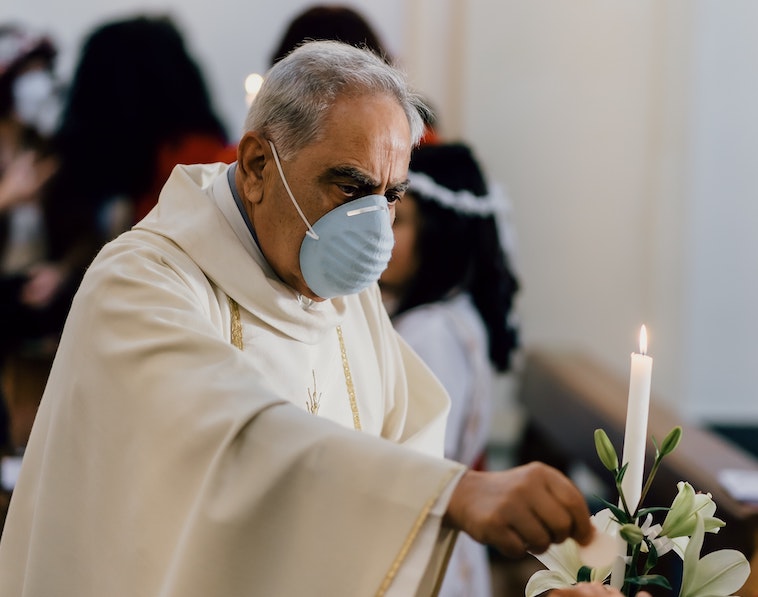Balancing Religious Freedom and Public Health

*The names of the interviewees have been changed to protect their privacy.
As the COVID-19 pandemic continues to dominate the everyday lives of AUP students and faculty alike, the distribution of the vaccine provides a sliver of hope that one day our community can and will return to normal. However, what is the protocol until university students are eligible to receive the vaccine? And how will the university go about the potential unwillingness of students to take it if vaccination becomes mandatory? Being an international university with students and faculty from such diverse countries, backgrounds, and religious perspectives, AUP has a unique responsibility in approaching these difficult circumstances.
Grace, a junior at AUP majoring in Global Communications and minoring in Fashion Studies, is Mexican-American and Jewish with a Palestinian heritage. Grace was born and raised in New York City to both a Jewish mother and father and describes her religious approach to vaccination to be “normal” since she belongs to Reform Judaism. She says, “I’ve been vaccinated for everything required of me by schools since birth. I also used to get regular flu shots. Although I am a reformed Jew, nothing in my particular denomination goes against vaccination, but I know some conservative or Orthodox Jews are actively anti-vax.” When considering the sociological weight of the distribution of the COVID-19 vaccine in traditionally vaccine-resistant countries like France, Grace says she, “understands people’s concern about the vaccine and the criticism surrounding it, but I would still get it if my doctor told me it was safe.”
MYTH: The COVID vaccines were developed "too fast."
FACT: The vaccines were made possible because of decades of research on past coronaviruses like SARS & MERS.
Scientists first published the full genome of the virus over a YEAR ago.
Get the facts: https://t.co/yVyJY042Pd pic.twitter.com/Cju047fYbh— Andrew Cuomo (@NYGovCuomo) January 31, 2021
Regarding the Jewish faith and their relationship with immunizations, Rabbi David Niederman, the executive director and president of the United Jewish Organizations of Williamsburg, states that, "from a religious point of view, people have to vaccinate," since, "people have a duty to protect their families and the most vulnerable in their communities." As a result, the "anti-vax" rhetoric is not driven by the synagogue, but rather anti-vaccine campaigners using the notion of "Rabbinic authority" to pedal disinformation to sheltered Orthodox Jewish communities.
One particular disinformation campaign spread, led by a group called PEACH (Parents Educating and Advocating for Children’s Health), resulted in various measles outbreaks in the New York neighborhoods of Williamsburg, Borough Park, and Rockland County in April 2019. Brooklyn Orthodox Rabbi William Handler, one of the fear-mongering leaders of New York's "anti-vax" craze, has even gone so far as to declare that, "parents who 'placate the gods of vaccination' are engaging in 'child sacrifice.'" These claims ultimately instill fear in the parents of young children, resulting in a steady decline of immunizations among certain Orthodox or Hasidic populations.
While Grace's beliefs and attitudes represent a “moderate” stance, other students have deeper concerns and ethical arguments based on their nationalities and religious practices. Eleanor, also a junior at AUP majoring in Global Communications and minoring in Psychology, is a British-American-Indian resident and has been raised in both the Catholic and Hindu faiths. While her mother is American and Catholic, Eleanor's father is Indian and Hindu. As a result, she has never been vaccinated and has been raised with a holistic approach toward food, health, and overall well-being owing to her father’s religion and her mother’s profession as an all-natural food chef. Eleanor explains the roots of her holistic upbringing through her mother’s own personal struggles with health, saying, “Before having me and my brother, my mother experienced severe scoliosis and ended up being prescribed millions of pills after undergoing surgery. She had so many problems of indigestion and constant pain with the medication that she eventually sought out new ways of being and living. She ended up cutting out gluten, dairy, refined sugars, and other inflammatory foods and pursued an all-natural lifestyle. I’ve been raised that way ever since.”
Image credit: Gabriella Clare Marino/UnsplashAlthough Eleanor's personal beliefs have shaped her decision-making regarding her health and well-being, the Hindu religion does not prohibit vaccines or the ingredients within them. In fact, "while Hindus venerate cows, trace bovine components of certain vaccines have not been identified as a theological concern." Thus, the Hindu religion's approach toward vaccination is on par with that of Judaism. In Judaism, "the concept of Pikuakh nefesh, acting to save one's own or another's life, is a primary value. While some vaccines containing porcine-derived gelatin, Jewish scholars agree that porcine gelatin in injectable form is acceptable."
Nevertheless, when confronted with the looming presence of the vaccine, which Eleanor believes will be made mandatory by most institutions and countries to track the spread of the disease, she remains anxious but firm on her stance. She says, “I will not take the vaccine. Even when it was required by my American high school to have certain vaccinations, my mother and I went and described our religious beliefs and I was exempt. That will not change now because of COVID-19. It goes against the way I was raised and everything I have been taught since.” Eleanor went on to explain that her paternal grandmother, who lives in the Indian province of Goa, contracted COVID-19 but sought to cure herself holistically by taking turmeric, vitamin D, and other supplements to promote a strong and healthy immune system. Yet given her pre-existing condition of arthritis, Eleanor's grandmother has cited that the virus has made her "weaker" and significantly more fatigued.
Image credit: Jackson VannAlthough Grace and Eleanor's personal opinions regarding vaccines represent a small population of AUP's diverse student body, they provide a glimpse of the challenges ahead for our multicultural community. While the doctrines of Judaism and Hinduism explicitly state that they do not prohibit vaccines, international students like Grace and Eleanor will ultimately base their health decisions on their upbringings and personal views rather than adhering to religious or governmental ideologies. Nevertheless, the vaccine conversation remains a future obstacle AUP will need to address, given both France's current vaccine distribution plans and students' definite onsite return for the fall 2021 semester.









